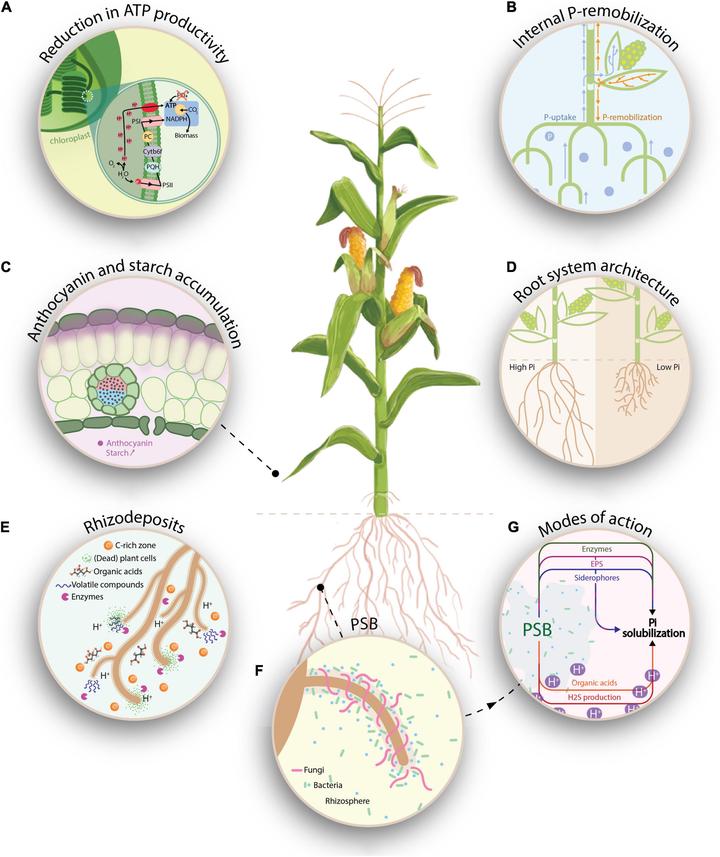Uncovering new insights and misconceptions on the effectiveness of phosphate solubilizing rhizobacteria in plants: a meta-analysis

Abstract
As the awareness on the ecological impact of chemical phosphate fertilizers grows, research turns to sustainable alternatives such as the implementation of phosphate solubilizing bacteria (PSB), which make largely immobile phosphorous reserves in soils available for uptake by plants. In this review, we introduce the mechanisms by which plants facilitate P-uptake and illustrate how PSB improve the bioavailability of this nutrient. Next, the effectiveness of PSB on increasing plant biomass and P-uptake is assessed using a meta-analysis approach. Our review demonstrates that improved P-uptake does not always translate in improved plant height and biomass. We show that the effect of PSB on plants does not provide an added benefit when using bacterial consortia compared to single strains. Moreover, the commonly reported species for P-solubilization, Bacillus spp. and Pseudomonas spp., are outperformed by the scarcely implemented Burkholderia spp. Despite the similar responses to PSB in monocots and eudicots, species responsiveness to PSB varies within both clades. Remarkably, the meta-analysis challenges the common belief that PSB are less effective under field conditions compared to greenhouse conditions. This review provides innovative insights and identifies key questions for future research on PSB to promote their implementation in agriculture.